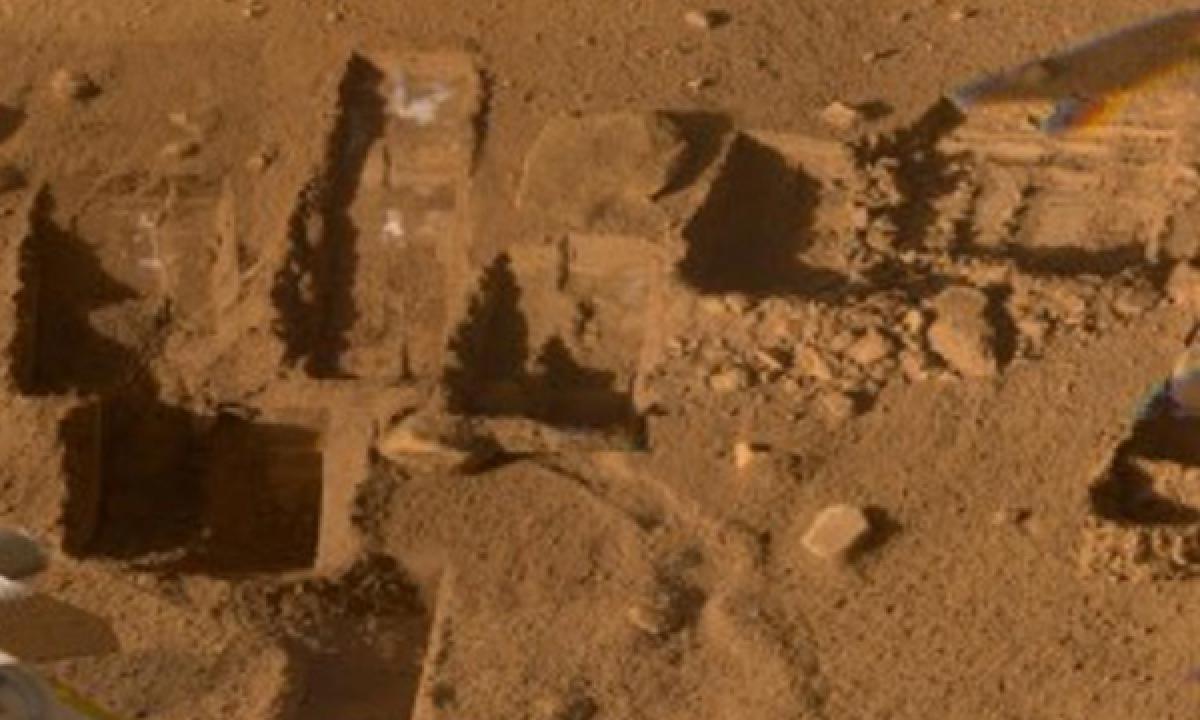Live
- Representatives of VIDASAM demand resignation of YSRCP MLAs
- Police grill BRS leader Jaipal Yadav
- Revanth sells 6Gs to woo voters in Maharashtra
- Cong govt striking balance between welfare, devpt
- OU students stage protest over food poisoning
- Cops sexually assaulted women in Lagacharla, alleges Rathod
- Flight services up from Vijayawada, Vizag airports
- Kishan Reddy has not brought a single rupee for TG from Centre: Ponnam
- Manipur on edge
- Girl student jumps to death from 4th floor of hostel
Just In

Mars is a primary target in the search for life outside Earth, and liquid water is the most important pre-requisite for life. But a team of international researchers has found that Mars is incredibly dry, and has been that way for millions of years.\"Evidence shows that more than three billion years ago Mars was wet and habitable. However, this latest research reaffirms just how dry the environment
London:Mars is a primary target in the search for life outside Earth, and liquid water is the most important pre-requisite for life. But a team of international researchers has found that Mars is incredibly dry, and has been that way for millions of years.
"Evidence shows that more than three billion years ago Mars was wet and habitable. However, this latest research reaffirms just how dry the environment is today," said Christian Schroder, Lecturer at the University of Stirling in Britain
"For life to exist in the areas we investigated, it would need to find pockets far beneath the surface, located away from the dryness and radiation present on the ground," Schroder, who is also science team collaborator for NASA's Mars Exploration Rover Opportunity mission, noted.
The discovery, published in the journal Nature Communications, provides vital insight into the planet's current environment and shows how difficult it would be for life to exist on Mars today.
Using data from the Opportunity mission, the scientists examined a cluster of meteorites at Meridiani Planum -- a plain just south of the planet's equator and at a similar latitude to Gale crater.
The researchers calculated a chemical weathering rate for Mars, in this case how long it takes for rust to form from the metallic iron present in meteorites.
This chemical weathering process depends on the presence of water. It takes at least 10 and possibly up to 10,000 times longer on Mars to reach the same levels of rust formation than in the driest deserts on Earth and points to the present-day extreme aridity that has persisted on Mars for millions of years, the study said.
A study published last year, which used data from the Curiosity Rover investigating Gale crater on Mars, suggested that very salty liquid water might be able to condense in the top layers of Martian soil overnight.
"But, as our data show, this moisture is much less than the moisture present even in the driest places on Earth," Schroder explained.

© 2024 Hyderabad Media House Limited/The Hans India. All rights reserved. Powered by hocalwire.com







